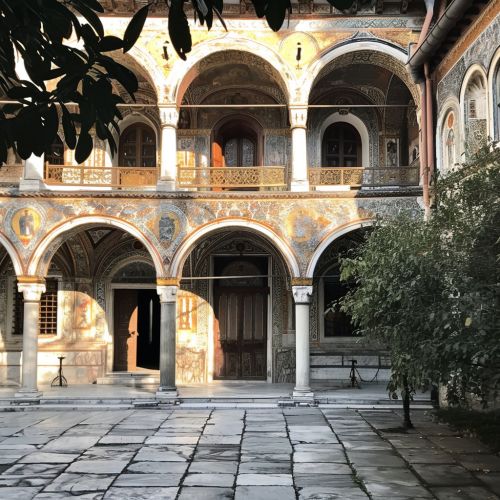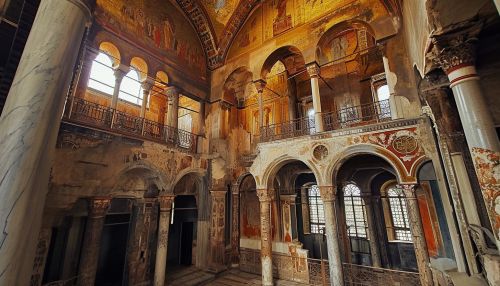Michael III
Early Life
Michael III was born on January 19, 840 AD, the son of Emperor Theophilos and his wife Theodora. His father was a notable Byzantine Emperor, known for his revival of the policy of Iconoclasm, a movement within the Eastern Christian Church that rejected the use of religious images. Michael's mother, Theodora, was a devout iconodule, a supporter of the use of religious images, and her influence would later play a significant role in the religious policies of Michael's reign.


Reign
Michael III ascended to the throne in 842 AD, following the death of his father. As he was only two years old at the time, his mother, Theodora, served as regent until he came of age. During her regency, Theodora ended the policy of Iconoclasm and restored the veneration of icons in the Byzantine Empire, a decision that had far-reaching implications for the religious and political landscape of the empire.
In 856 AD, Michael III assumed full control of the throne. His reign was marked by internal strife and external conflicts, particularly with the Abbasid Caliphate and the Bulgarian Khanate. Despite these challenges, Michael III is credited with significant military victories and administrative reforms that strengthened the Byzantine Empire.
Military Campaigns
One of the most significant military campaigns of Michael III's reign was the Byzantine-Arab Wars, a series of conflicts between the Byzantine Empire and the Abbasid Caliphate. Under Michael's leadership, the Byzantine forces achieved several notable victories, including the recapture of the island of Crete in 961 AD.
Another notable military campaign was against the Bulgarian Khanate. Despite initial setbacks, Michael III was able to secure a peace treaty with the Bulgarians in 864 AD, which marked the end of decades of warfare between the two powers.
Administrative Reforms
Michael III implemented a series of administrative reforms aimed at strengthening the Byzantine Empire. These included the reorganization of the imperial administration, the strengthening of the military, and the promotion of education and culture. His reforms had a lasting impact on the Byzantine Empire, laying the groundwork for its survival and prosperity in the centuries to come.
Personal Life and Death
Despite his achievements, Michael III's personal life was marked by controversy. His close relationship with his courtier, Basil the Macedonian, led to rumors of scandal and intrigue. In 867 AD, Basil orchestrated a coup against Michael III and had him assassinated, thus ending his reign.
Legacy
Michael III's legacy is a complex one. While his reign was marked by internal strife and external conflicts, his military victories and administrative reforms strengthened the Byzantine Empire. His decision to end the policy of Iconoclasm and restore the veneration of icons had a profound impact on the religious and cultural landscape of the empire.
